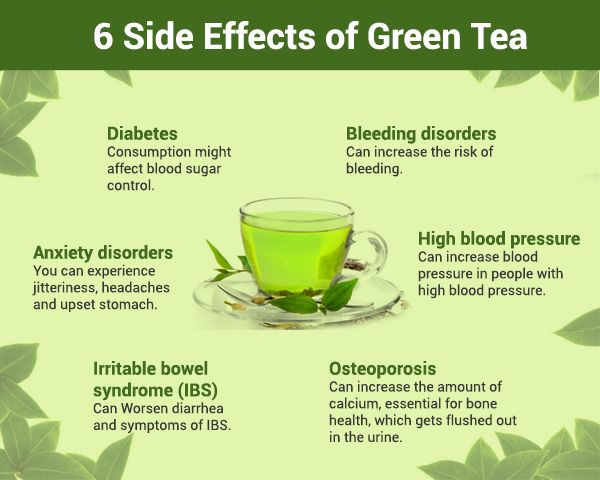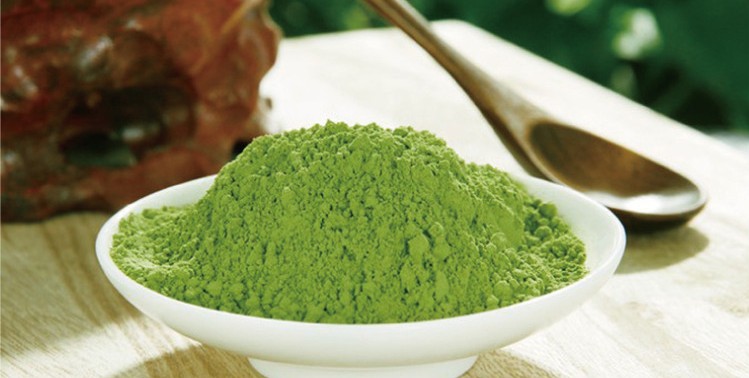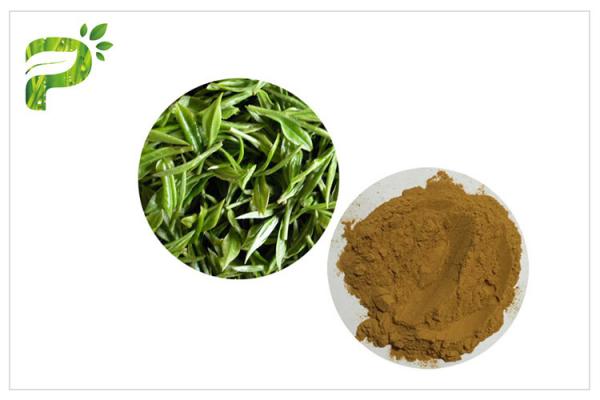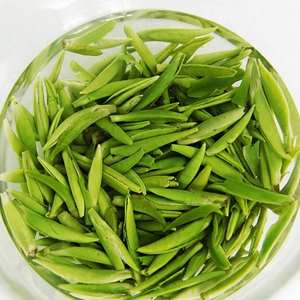Content Menu
● Understanding Green Tea and Its Components
● The Relationship Between Green Tea and Blood Pressure
● Green Tea Extract and Blood Pressure: A Closer Look
● Potential Mechanisms for Increased Blood Pressure
● Safety Considerations and Recommendations
● Conclusion
● Questions and Answers
Green tea, a beverage that has been consumed for centuries, has gained significant popularity in recent years due to its potential health benefits. One area of particular interest is its effect on blood pressure. While many people believe that green tea can help lower blood pressure, there is some concern about whether green tea extract, a concentrated form of green tea, might actually raise blood pressure. In this article, we will explore the relationship between green tea extract and blood pressure, examining scientific studies and expert opinions to provide a comprehensive understanding of this topic.

Understanding Green Tea and Its Components
Before delving into the effects of green tea extract on blood pressure, it's essential to understand what green tea is and what it contains. Green tea is made from the leaves of the Camellia sinensis plant, which are minimally processed to preserve their natural compounds. The key components of green tea that are believed to have health benefits include:
1. Catechins: These are a type of polyphenol, with epigallocatechin gallate (EGCG) being the most abundant and potent.
2. Caffeine: Although present in lower amounts than in coffee, green tea does contain caffeine.
3. L-theanine: An amino acid that can have calming effects on the nervous system.
4. Vitamins and minerals: Including vitamin C, B vitamins, and various minerals.
Green tea extract is a concentrated form of these components, often used in dietary supplements. The concentration of these compounds in green tea extract is much higher than what you would find in a typical cup of brewed green tea.
The Relationship Between Green Tea and Blood Pressure
Numerous studies have investigated the effects of green tea consumption on blood pressure. The majority of these studies suggest that regular green tea consumption may have a positive impact on blood pressure, potentially helping to lower both systolic and diastolic blood pressure.

Several mechanisms have been proposed to explain how green tea might help lower blood pressure:
1. Antioxidant effects: The catechins in green tea, particularly EGCG, are powerful antioxidants that can help protect blood vessels from damage caused by free radicals. This protection may help maintain the elasticity of blood vessels, allowing them to dilate and constrict more easily, which can contribute to better blood pressure regulation.
2. Nitric oxide production: Some studies suggest that green tea catechins may enhance the production of nitric oxide in the body. Nitric oxide is a vasodilator, meaning it helps relax blood vessels, potentially leading to lower blood pressure.
3. Diuretic effects: Green tea has mild diuretic properties, which means it can increase urine production. This effect may help reduce blood volume, potentially leading to a decrease in blood pressure.
4. Weight management: Regular green tea consumption has been associated with modest weight loss and reduced body fat. Since being overweight or obese is a risk factor for high blood pressure, the weight management benefits of green tea may indirectly contribute to better blood pressure control.
Green Tea Extract and Blood Pressure: A Closer Look
While the evidence for regular green tea consumption and its potential blood pressure-lowering effects is generally positive, the situation becomes more complex when we consider green tea extract. Green tea extract is a concentrated form of the active compounds found in green tea, typically consumed in supplement form. The high concentration of these compounds raises questions about their potential effects on blood pressure.
Some studies have investigated the effects of green tea extract on blood pressure, and the results have been mixed. While some research suggests that green tea extract may help lower blood pressure, other studies have found no significant effect, and a few have even reported potential increases in blood pressure in some individuals.
Factors that may influence the effect of green tea extract on blood pressure include:
1. Dosage: The amount of green tea extract consumed can significantly impact its effects on the body. Higher doses may be more likely to cause side effects or unexpected reactions.
2. Individual variability: People may respond differently to green tea extract based on their genetics, overall health, and other factors.
3. Caffeine content: Some green tea extracts contain significant amounts of caffeine, which can temporarily raise blood pressure in some individuals.
4. Interaction with medications: Green tea extract may interact with certain medications, including those used to treat high blood pressure, potentially affecting their efficacy or causing unwanted side effects.
5. Pre-existing conditions: Individuals with certain health conditions may be more sensitive to the effects of green tea extract on blood pressure.

Potential Mechanisms for Increased Blood Pressure
While the majority of evidence suggests that green tea and its extracts may have a neutral to positive effect on blood pressure, there are a few potential mechanisms by which green tea extract could theoretically raise blood pressure in some individuals:
1. Caffeine sensitivity: Green tea extract often contains caffeine, which can cause a temporary increase in blood pressure, especially in people who are sensitive to its effects or who consume large amounts.
2. Stimulant effects: The combination of caffeine and other compounds in green tea extract may have a stimulant effect on the nervous system, potentially leading to increased heart rate and blood pressure in some individuals.
3. Interaction with medications: Green tea extract may interact with certain blood pressure medications or other drugs, potentially interfering with their effectiveness or causing unexpected side effects.
4. Excessive consumption: Consuming very high doses of green tea extract may lead to adverse effects, including potential increases in blood pressure.
5. Individual sensitivity: Some people may be more sensitive to the effects of green tea extract due to genetic factors or pre-existing health conditions.
Safety Considerations and Recommendations
While green tea and green tea extract are generally considered safe for most people when consumed in moderation, it's important to consider the following safety recommendations:
1. Consult with a healthcare provider: Before starting any new supplement regimen, including green tea extract, it's advisable to consult with a healthcare provider, especially if you have pre-existing health conditions or are taking medications.
2. Start with low doses: If you choose to use green tea extract supplements, start with a low dose and gradually increase it while monitoring for any adverse effects.
3. Be aware of caffeine content: If you're sensitive to caffeine or trying to limit your intake, look for decaffeinated green tea extract options.
4. Monitor your blood pressure: If you have concerns about your blood pressure, regularly monitor it and report any significant changes to your healthcare provider.
5. Choose reputable brands: If using green tea extract supplements, select products from reputable manufacturers that undergo third-party testing for quality and purity.
6. Consider whole green tea: For many people, consuming whole green tea as a beverage may be a safer and more beneficial option than taking concentrated extracts.

Conclusion
The relationship between green tea extract and blood pressure is complex and not fully understood. While regular consumption of green tea as a beverage has been associated with potential blood pressure-lowering effects in many studies, the impact of concentrated green tea extract on blood pressure may vary depending on individual factors and dosage.
For most people, moderate consumption of green tea or green tea extract is unlikely to cause significant increases in blood pressure. However, as with any dietary supplement, it's important to approach green tea extract with caution, especially if you have pre-existing health conditions or concerns about your blood pressure.
If you're considering using green tea extract supplements, it's best to consult with a healthcare provider who can provide personalized advice based on your individual health status and needs. Remember that a balanced diet, regular exercise, and overall healthy lifestyle choices remain the cornerstone of maintaining healthy blood pressure levels.
Questions and Answers
Q: Is green tea extract safe for everyone to consume?
A: While green tea extract is generally considered safe for most people when used in moderation, it may not be suitable for everyone. People with certain health conditions, those taking specific medications, pregnant or breastfeeding women, and individuals sensitive to caffeine should consult with a healthcare provider before using green tea extract supplements.
Q: How much green tea or green tea extract is safe to consume daily?
A: The safe amount can vary depending on the individual and the concentration of the extract. For brewed green tea, consuming 3-5 cups per day is generally considered safe for most adults. For green tea extract supplements, it's best to follow the manufacturer's recommendations and consult with a healthcare provider, as concentrations can vary widely between products.
Q: Can green tea extract interact with blood pressure medications?
A: Yes, green tea extract can potentially interact with certain blood pressure medications. It may enhance the effects of some medications or interfere with others. Always inform your healthcare provider about any supplements you're taking, including green tea extract, especially if you're on blood pressure medication.
Q: Are there any side effects associated with green tea extract consumption?
A: While generally safe, some people may experience side effects from green tea extract, especially at high doses. These can include headaches, nervousness, sleep problems, irritability, irregular heartbeat, and digestive issues. If you experience any adverse effects, discontinue use and consult a healthcare provider.
Q: Is it better to drink green tea or take green tea extract supplements for potential health benefits?
A: For most people, drinking whole green tea as a beverage may be preferable to taking green tea extract supplements. Whole green tea provides a natural balance of compounds and is less likely to cause adverse effects. However, some individuals may benefit from the concentrated form found in supplements. The best choice depends on individual health goals and should be discussed with a healthcare provider.































